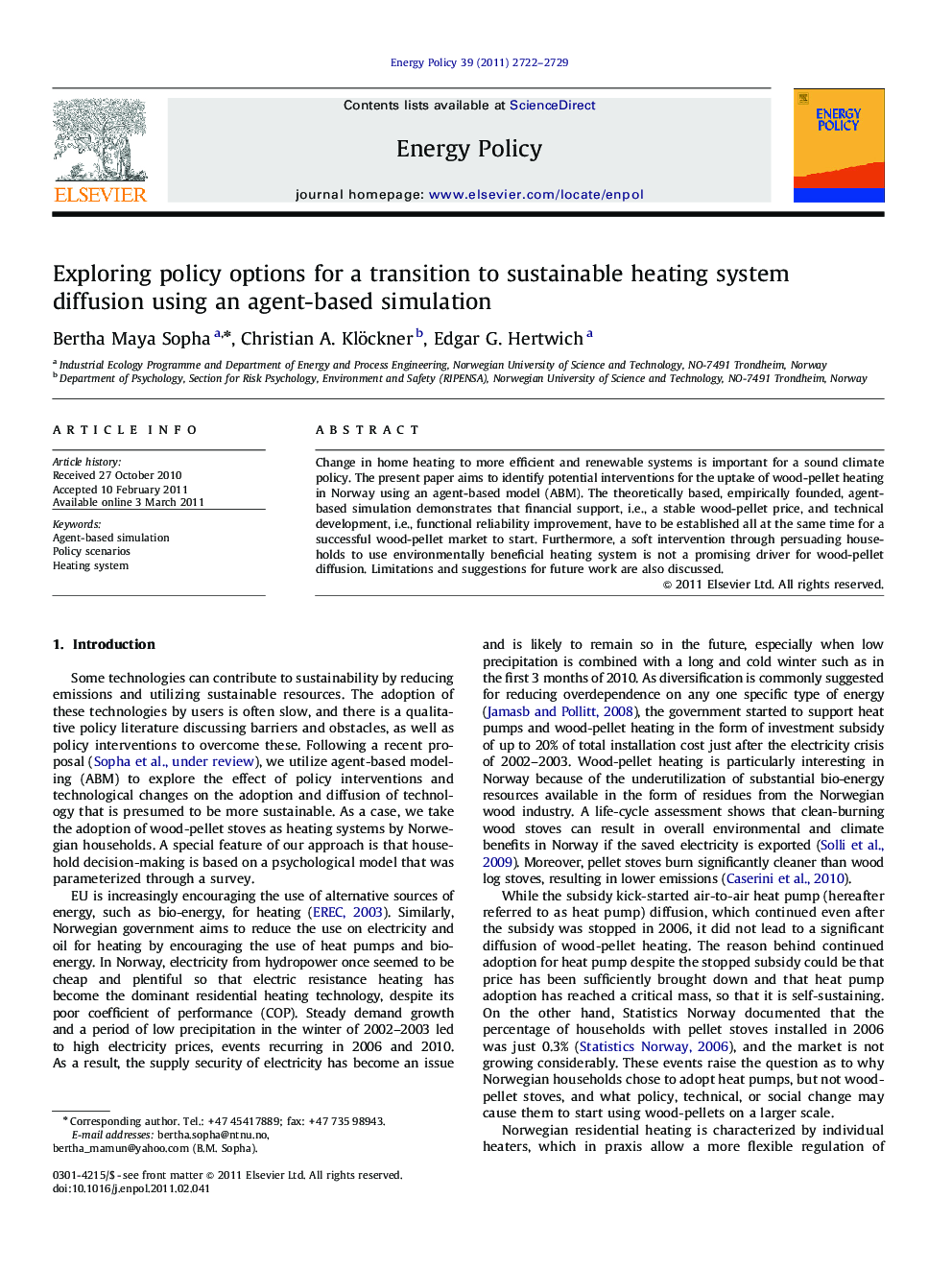| Article ID | Journal | Published Year | Pages | File Type |
|---|---|---|---|---|
| 995895 | Energy Policy | 2011 | 8 Pages |
Change in home heating to more efficient and renewable systems is important for a sound climate policy. The present paper aims to identify potential interventions for the uptake of wood-pellet heating in Norway using an agent-based model (ABM). The theoretically based, empirically founded, agent-based simulation demonstrates that financial support, i.e., a stable wood-pellet price, and technical development, i.e., functional reliability improvement, have to be established all at the same time for a successful wood-pellet market to start. Furthermore, a soft intervention through persuading households to use environmentally beneficial heating system is not a promising driver for wood-pellet diffusion. Limitations and suggestions for future work are also discussed.
Research highlights► The theoretically based, empirically founded, agent-based simulation is applied to investigate potential policy options toward diffusion of wood-pellet heating in Norway. ► Relative advantages are necessary for wood-pellet heating to be adopted, consistent with Diffusion of Innovation theory (Rogers, 2003). ► Simultaneous development is also required for further uptake of wood-pellet heating, supporting the existing empirical hypothesis by Egger and Öhlinger (2002). ► Persuading households to use environmentally friendly heating system is not a promising driver, in line with empirical finding of Sopha and Klöckner (under review), who investigated psychological factors underlying the adoption of wood-pellet heating.
